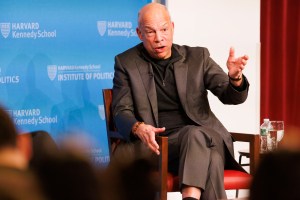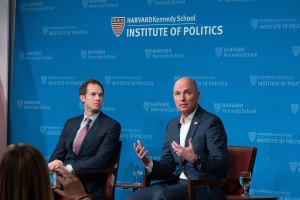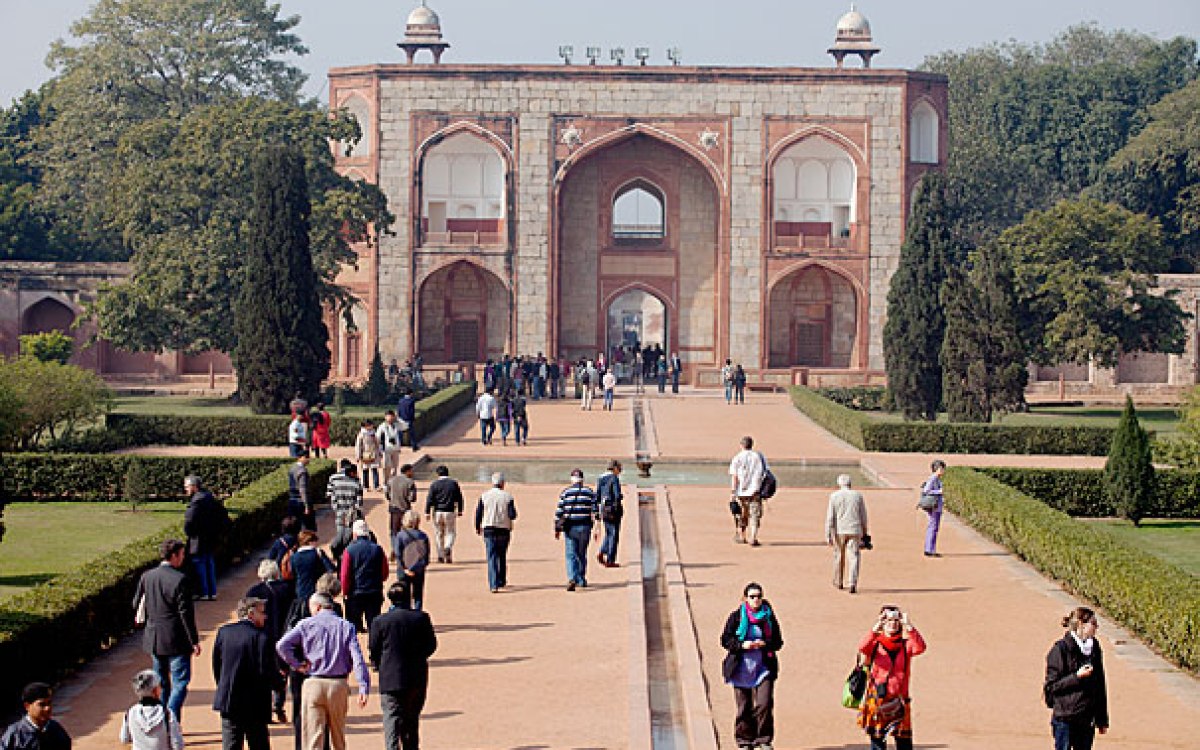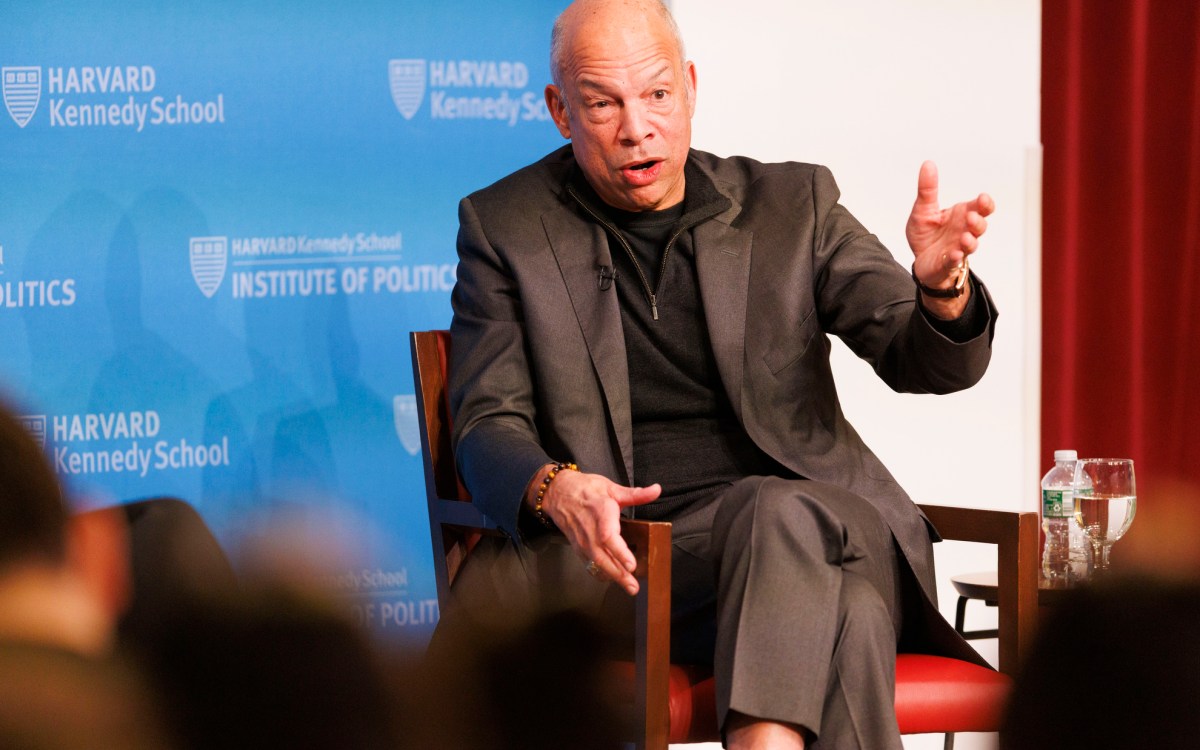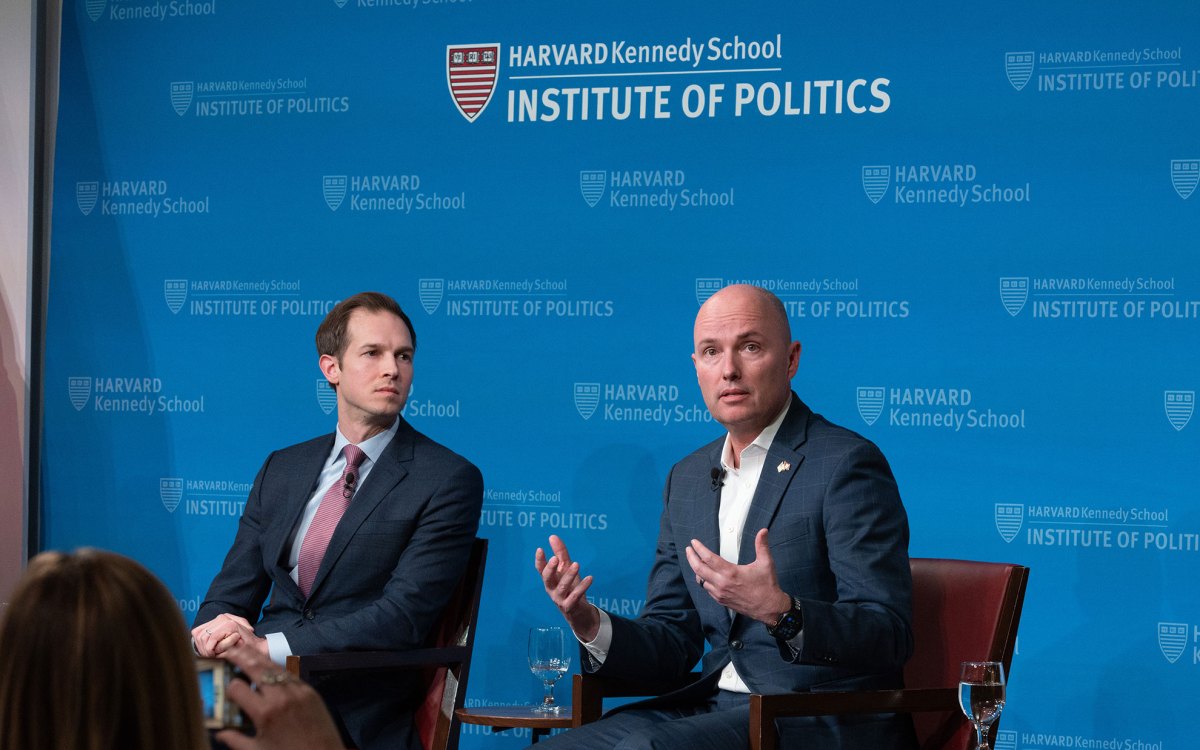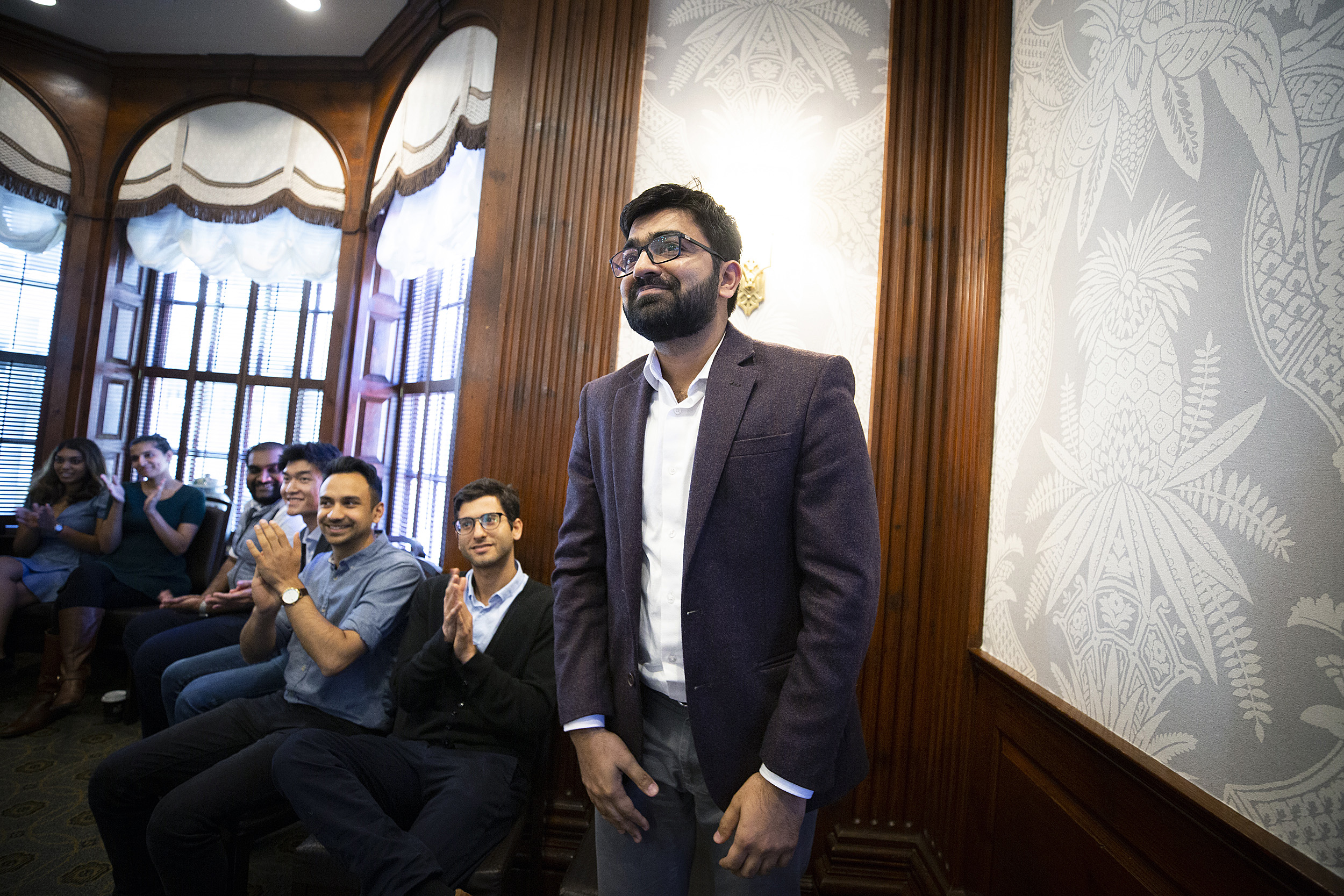
Vikas Birhma ’19 (right) is announced as the winner for the organization Gramhal.
Stephanie Mitchell/Harvard Staff Photographer
A lifeline to India’s farmers on the edge of despair
Student-run nonprofit at Kennedy School wins innovation competition
Across India, debt and the subsistence farmer go hand in hand. Unfortunately, so does suicide.
There are an estimated 62 million distressed small farmers in India. According to a recently formed nonprofit, Gramhal, a farmer dies by suicide every half hour in India, largely because of hopelessness caused by a “vicious debt cycle.” That cycle revolves around poor farmers’ desperate need for cash during harvest season and is fostered by an informal credit system that lends desperate farmers money at unfavorable rates. The cash crunch and need to repay the debt often forces farmers to sell crops immediately rather than waiting for optimal prices.
Gramhal, founded by Vikas Birhma ’19, a Harvard Kennedy School student, offers farmers a way to break that cycle. The organization, which has four employees in India, provides warehousing and pooling of transport, allowing farmers to store their crops and wait until prices improve. For those who need cash while they wait, Gramhal also provides access to credit on favorable terms through a partner bank. All of this is accessible through a cellphone app that also supplies daily price information and a connection to buyers, so farmers can sell at the most favorable time.
A pilot program with 25 farmers resulted in a 40 percent increase in income.
On Thursday, the organization received a major boost, winning the Seed for Change Program competition sponsored by Harvard’s Lakshmi Mittal and Family South Asia Institute. The competition seeks to foster student entrepreneurship and innovation in effecting change in India and Pakistan. Winning teams can hail from any Harvard School but must include at least one Harvard student and feature partners on the ground in South Asia. Gramhal won the first prize of $40,000, which Birhma said will allow the organization to double its staff in India and reach 1,100 farmers next year.
“The Seed for Change Program best exemplifies what Harvard students are capable of while they’re here at the University,” said Selmon Rafey, program coordinator at the Mittal Institute. “We asked them to identify real problems affecting real people of South Asia and then explore and propose novel solutions to those problems.”
Gramhal was among four finalists who presented their ideas to a panel of judges during a lunchtime event at the Harvard Faculty Club. Two runners-up — Meet, an employment app that seeks to connect employers and job seekers, and Riskboard, a digital dashboard tool that monitors political risks such as human rights abuses for corporations, investors, and nongovernmental organizations — both received $5,000 to further their efforts.
K.P. Balaraj, the contest’s sponsor and one of its four judges, said Gramhal came out on top because it has immediate applicability to the Indian market, takes a course that is likely to be acceptable to those involved, and targets a problem — the plight of India’s small farmers — widely recognized as urgent.
“It’s a very large and current problem,” said Balaraj, a graduate of Harvard Business School. “We could see it scaling over time and at scale it could have groundbreaking impact. I think that’s what excited us [judges] most: If it works at scale it could really create meaningful change to a community that is under stress today.”
Balaraj said the ideas he’s hearing during the competition seem to be getting better each year. Gramhal stood out this year, however, not just because of the quality of the idea, but also because there’s a team in place in India that can hit the ground running.
“It’s good to see students thinking big to solve large social problems in India,” Balaraj said. “What stood out about this [project] is they had a good team in Boston, but they also had a very good team in India. So, for … the first 30, 60, 90 days, they have a team that can actually run with it.”
Birhma grew up on a small rural farm in India and came to Harvard to pursue a master of public policy degree at the Kennedy School. When he arrived, he began developing the idea for Gramhal and, instead of taking a summer internship here after his first year, traveled back home to develop it further.
“I identified the problem, built a local team, and then I came back here,” Birhma said. “I’m graduating and excited to go back to India to work full time on this.”

